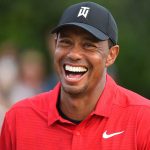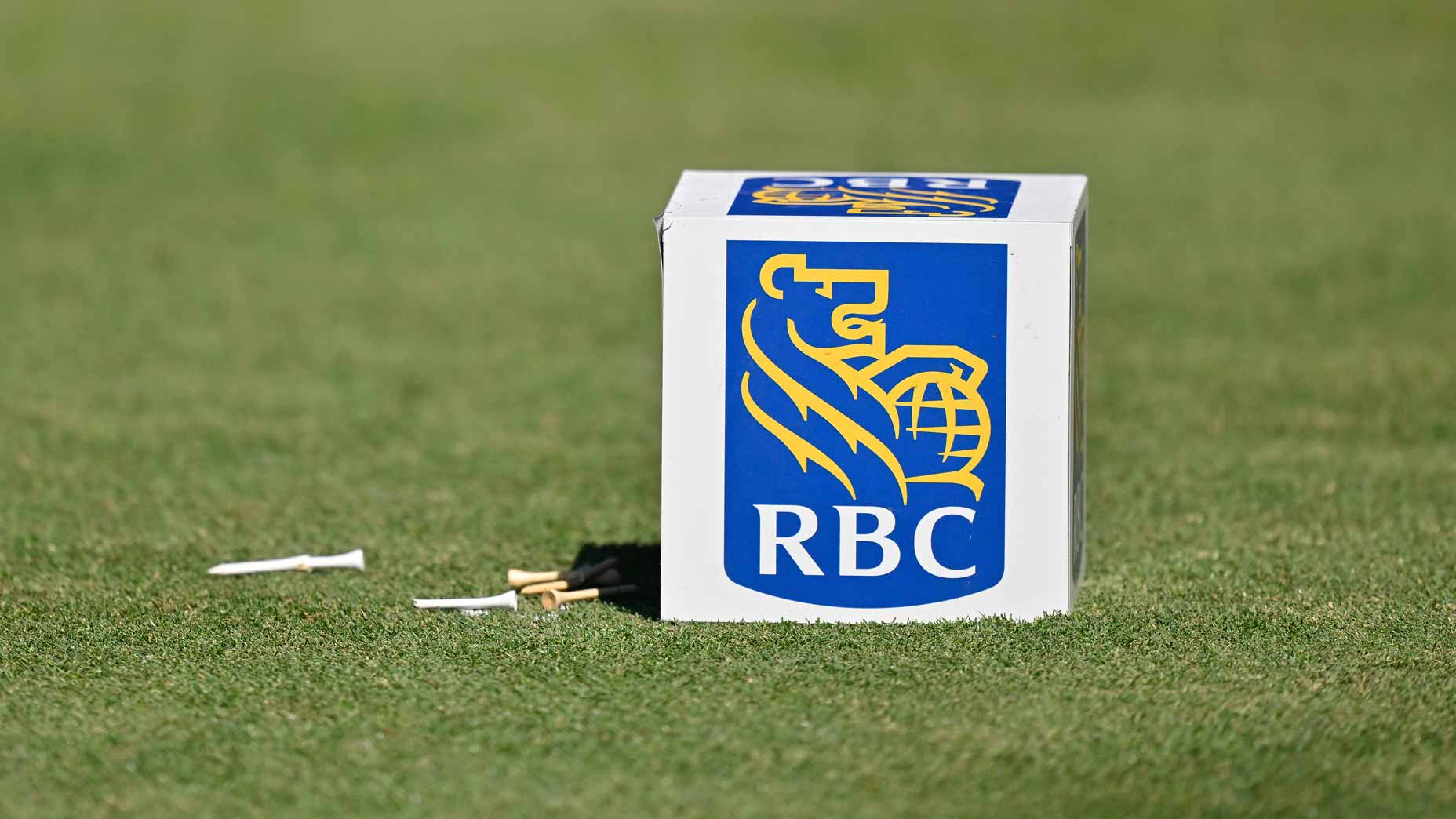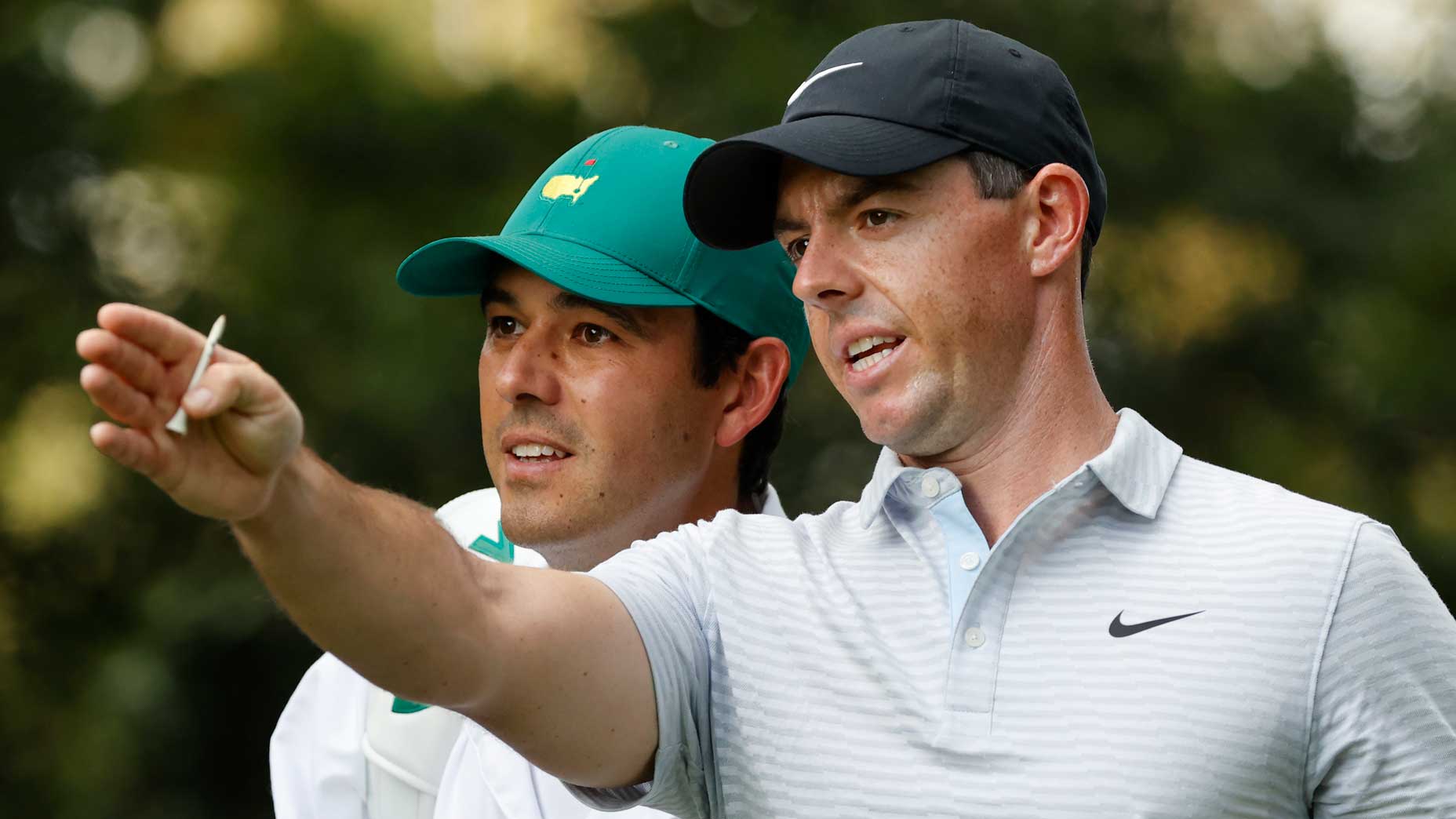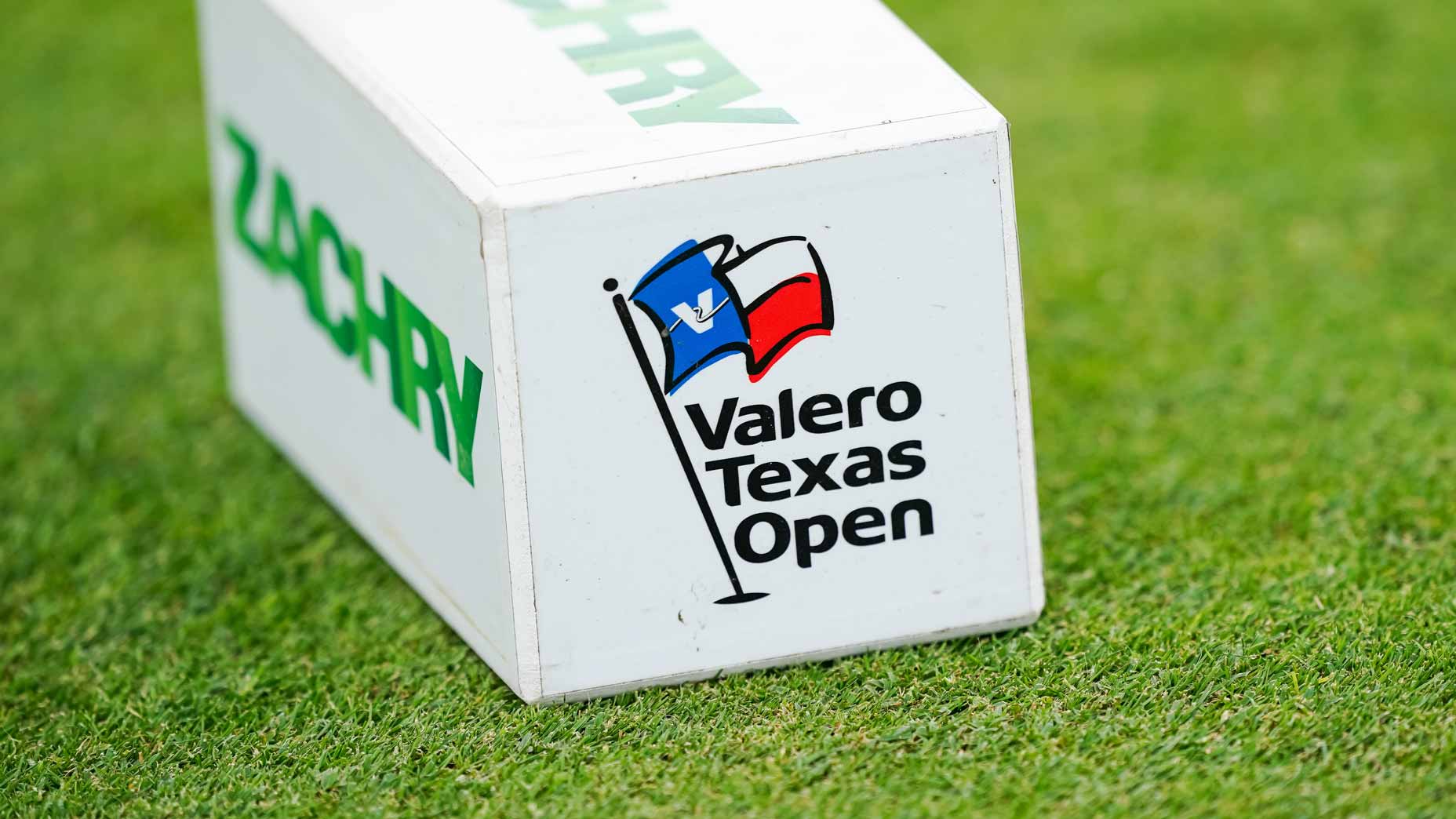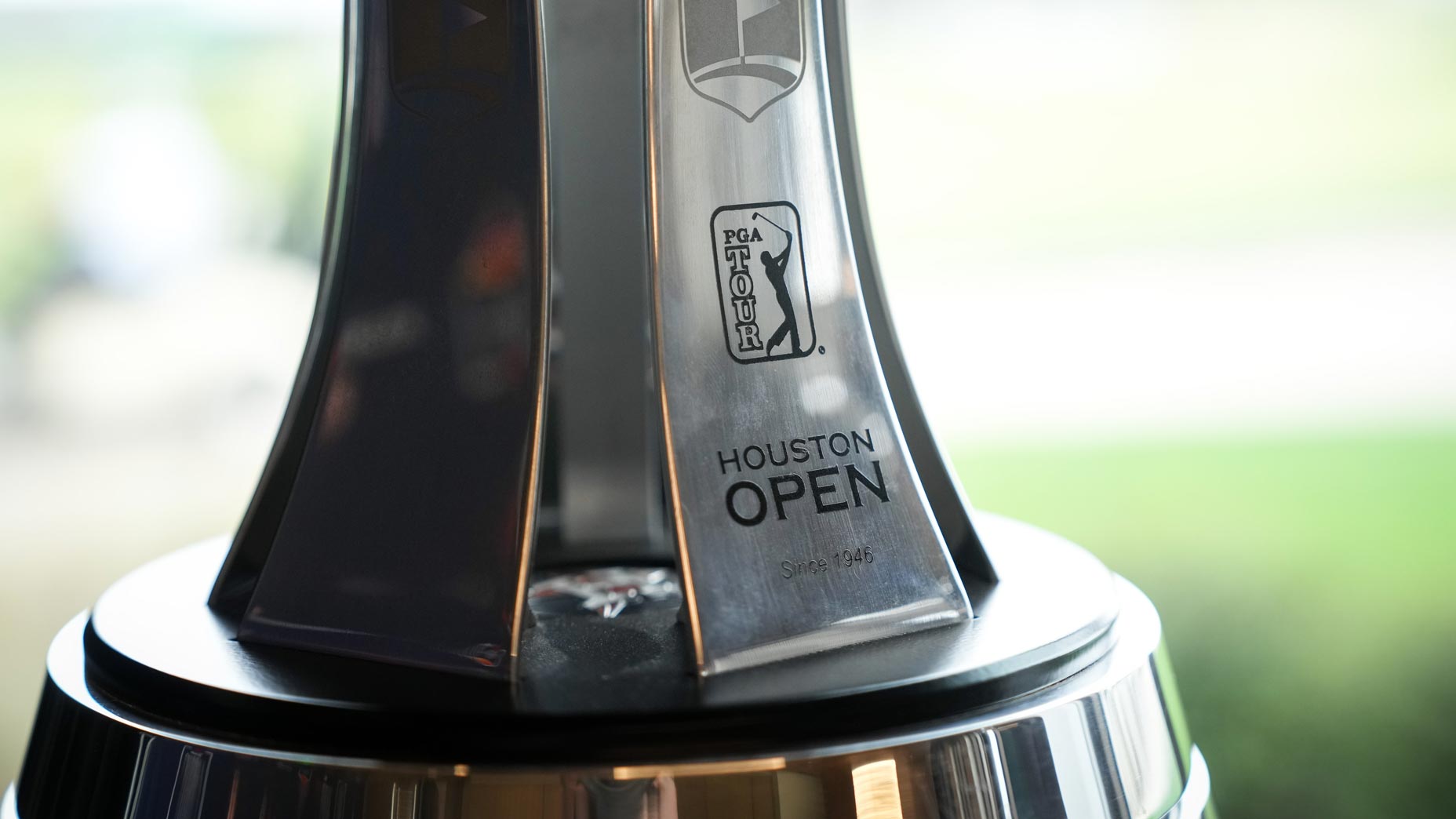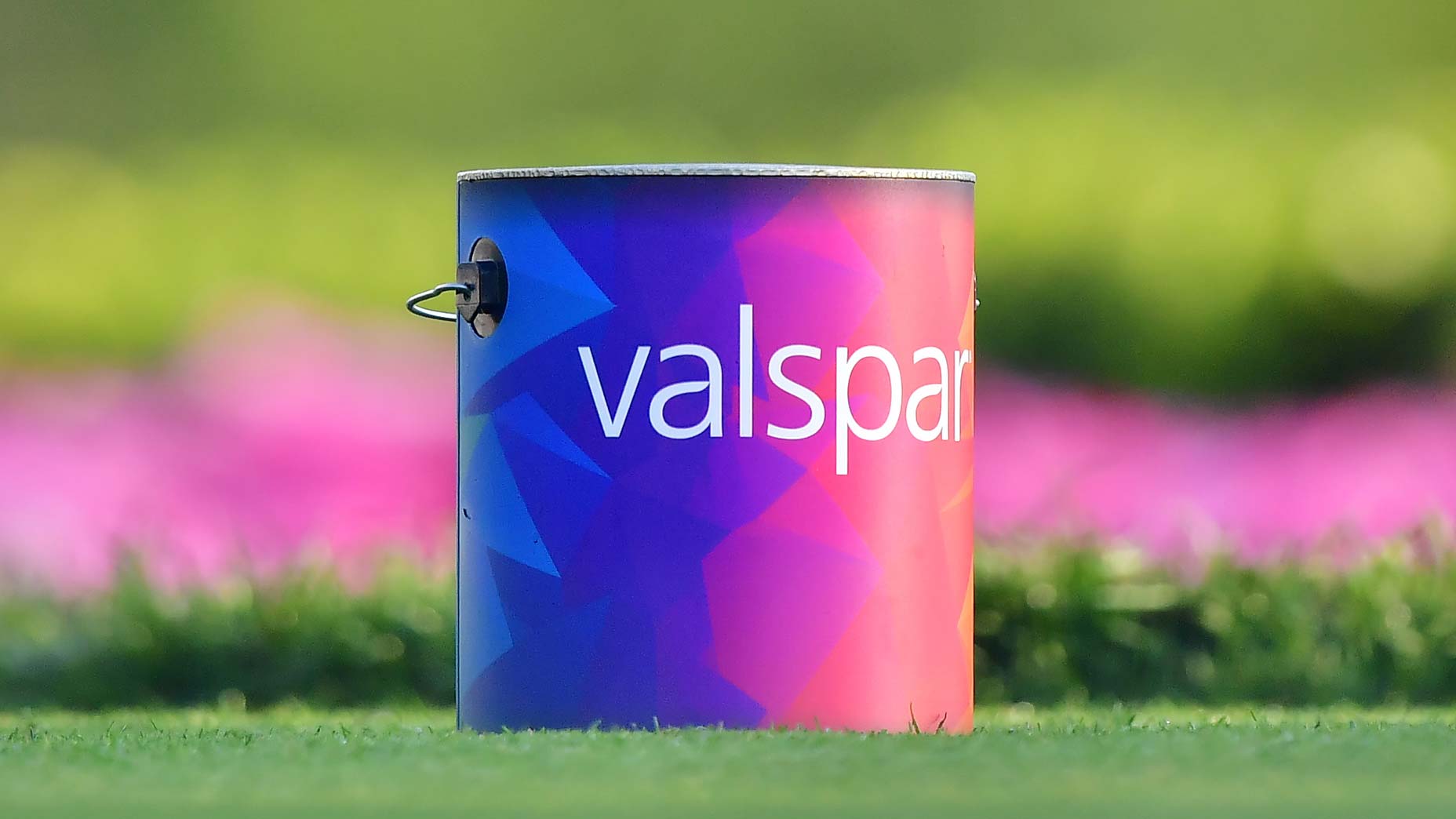All season long, senior writers Michael Bamberger and Alan Shipnuck have been having an ongoing conversation about the game’s biggest events. Instead of a podcast, we thought their Ryder Cup chat would make a fun read. So, without further ado…
ALAN SHIPNUCK: Michael, how should we begin?
MICHAEL BAMBERGER: How about a tough question first: How many assistant captains on the European team can you name?
SHIPNUCK: Well, let’s see. Harrington. Westwood. McDowell. Luke Donald…
BAMBERGER: That’s a murderer’s row right there when you think about it.
SHIPNUCK: If they were gonna play the assistants against the assistants, I like Europe’s chances for sure.
BAMBERGER: That’s how the tiebreaker works. Is that not accurate?
SHIPNUCK: That will be my next, slightly less controversial column.
BAMBERGER: I’m personally surprised that Van de Velde was not made an assistant captain. I would have been delighted to see him there.
SHIPNUCK: Unfortunately he’s not the only French golfing figure absent from this Ryder Cup. It’s a bummer that none of the French players qualified; I mean, we need to have a whole separate conversation about the mysterious disappearance of the enigmatic Victor Dubuisson. It’s certainly unusual for the fans not to have any homegrown heroes to cheer for.

BAMBERGER: Well, let me ask you about that because it’s been a quarter century since the U.S. has won a road game. Do you think having it in France has an effect on Europe’s homefield advantage?
SHIPNUCK: It really depends on what percentage of the crowd is French, right? Because they don’t love golf in the same way as other European nations which have hosted the Cup. It’s certainly not in the French DNA like the people of Scotland or Ireland or Wales. Spain isn’t necessarily a golfing nation but they had galvanizing figures in Seve and Jose Maria. So if there’s a lot of French fans there, or if it’s a corporate crowd, that’s going to mean a less partisan, less boisterous gallery. If every ticket gets resold or given away to road-tripping fans from the U.K. and Ireland and Spain, then I think it’ll feel like any other European Ryder Cup. But the real homefield advantage is the course itself. The European Tour plays an event there every year and some of the Euro players have had a lot of success at Le National. And it’s not a place that rewards freewheeling play and bombing it off the tee, which certainly a lot of the Americans can do. So I think that overall there is a homefield advantage this year, even if the Frenchie fans are too cool to whoop it up.
BAMBERGER: The cultural differences are interesting. American players are used to going over to the British Isles, but France is very different. Do you think being in an even more unfamiliar cultural environment of France makes them just a little more out of sorts since we’re dealing with really subtle differences on which this thing might possibly hinge?
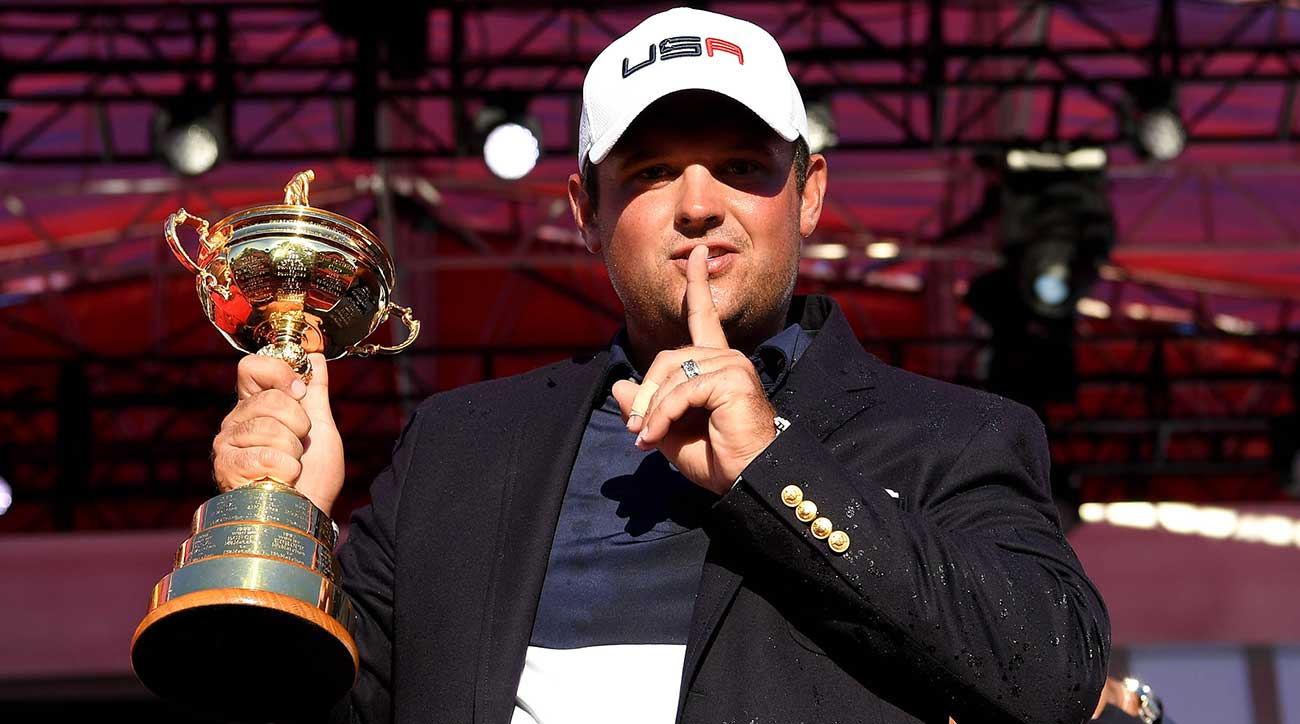
SHIPNUCK: I think that both teams are so hermetically sealed in their hotels and their team rooms I don’t think it’s as much of a factor as if the players were on their own playing the Open de France and having to figure out things on their own. For all we know, the American side is going to fly in Cracker Barrel grub every night so the boys feel at home. But it’s important to note how different an experience the Ryder Cup is for the players. They have no agency over their lives, right down to the color of their trousers. If you’re the kinda guy on Tour who likes to go to bed early and get up early, you can’t do that. You have all these galas and team dinners and all these bonding sessions with your teammates. If you’re like a lone wolf like Bubba, who always plays his practice rounds alone, all of a sudden you’ve gotta go out every day with a bunch of different guys. And in every possible way, large and small, they’re taken out of their routine. So while Europe has some incredibly talented rookies like Tommy Fleetwood and Jon Rahm, they have never been through all pomp and circumstance of the Ryder Cup. They’ve never had to deal with their routine being totally upended. The rhythm of the week is so different, and so is the actual golf for players who are used to stroke play. I do think it’s a big disadvantage for the Europeans to have so many rookies. Wait, I’m talking too much here. Let’s move on – what do you think of the captains?
BAMBERGER: Furyk is a very bright person. He’s a very calculated person. And he doesn’t pretend at all to be a rah-rah, charismatic type. Bjørn tries even less. They are who they are and they’re not trying to be a Ben Crenshaw or a Seve. And it’ll be interesting because the biggest thing you have to do as captain is sit people down. Of course you’ve gotta play the right guy with the right guy, but the players help you make that decision. And Furyk is a captain – like Davis before him and unlike Tom Watson before him – who is really looking to get a lot of input from his players. But there’s one area where you’re not gonna get any help from your players and that’s who to sit, so that’s the toughest part of the job. Now, we know Tiger and Phil certainly aren’t going to play all five sessions. They might play as few as three apiece so that helps a little bit. But still, you have to sit players and then you have to manage a seated player, which of course is where Watson had such struggles. And I’m not sure Fuyrk or Bjorn have the warmth gene to make ’em feel okay about the fact that they’re sitting.
SHIPNUCK: That’s a great point. And that’s where Tiger and Phil as de facto assistant captains really helps the U.S. side. Because given Tiger’s back and the fact that he must be emotionally exhausted after East Lake, and given Phil’s age and poor form coming in, I feel like they probably will each only play three matches. If the two greatest players of the last quarter century are okay sitting, how can Justin Thomas or anyone else complain about it? Europe has all these rookies so none of them have a claim on playing every match, though I would expect Rahm and Fleetwood will wind up doing so. It’s become a joke how many vice captains there are but a big part of their job is babysitting the players who get benched by keeping their spirits up and helping them practice and prepare for when it is their turn. So, you touched on Tiger and Phil. They loom so large in this Ryder Cup. This could easily be Phil’s final one as a player. For Tiger, this puts an exclamation point on his comeback. What are you expecting from them?
BAMBERGER: That’s interesting, Alan. The Tiger comeback is not one event, but a series of them. Tampa, the Open, the PGA. Then East Lake. Now the Ryder Cup. Come April, Augusta. It’s been coming in waves. Given everything he’s been through, this is the run of his life. You may be right – maybe he does play only three times. But come Sunday, I don’t care who he is playing, you could see Tiger going full Stephen Ames on his opponent. As he did to Rory Sunday at East Lake. You give him one guy to beat right in front of him, Tiger’s the king of that. Phil is less predictable that way. But I think Furyk’s gotta feel great knowing he’s got this 42-year-old icon playing good golf. Whoever draws Tiger will have his hands full. And that’s good for NBC, for golf, for Tiger, even for his opponent. As for Phil, when it’s all said and done, people really don’t fully appreciate how great this guy has been for so long. It’s incredible that he hasn’t missed a Ryder Cup since the early ‘90s. There’s a lot there to celebrate, including the long, flexible swing, and his sense of fun. He loves golf. He loves the arena. Tiger likes beating people. But let me switch gears here for a second, Alan, and ask you something. You predicted nearly two years ago this 2018 U.S. team was going be one of the strongest U.S. teams ever, and that the U.S. would dominate for many years to come. Just on a personal level, what kind of heat have you taken for that?
SHIPNUCK: Honestly, it’s been fun. In this era of Trump, I get a lot of, “You’re just an ugly American,” feedback from European fans on Twitter. What they don’t know is that for decades I almost always picked Europe to win, not only because I thought they would win but because it was more fun when they did. The angst that followed every U.S. loss was delicious to write about. Picking the Americans this time wasn’t an emotional choice, it was just pure logic. Look at how stacked this team is and how young it is. Anyway, the blowback has been fun but at times tedious. Every time some Euro dude had a top-three finish somewhere, people are tweeting at me like, “You’re an idiot, these guys are peaking!” This was in March. You know?
BAMBERGER: At Carnoustie some guys in the street recognized you and wanted to talk about the Ryder Cup. That was wild!
SHIPNUCK: That was great. What can I say, I took a strong stance. And I wrote an an over-the-top, hyperbolic column because that’s fun to do. And the whole point of an opinion piece is to stimulate a response. It obviously worked. If the U.S. doesn’t win this Ryder Cup, my life is gonna be a living hell for two years. Without a doubt I have more at stake here than Jim Furyk, Thomas Bjørn, Tiger Woods, or anybody else in Paris. I’m being serious. One team is going to lose the Ryder Cup and those players will wake up the next day hungover but they’ll just keep on living. I’m going to have to go into hiding if the U.S. loses. But I will say this: Even if Europe does win the Cup, the prediction will still look good 10 years from now. Twenty years from now it’ll look even better because the U.S. is going to dominate long term. And that was really the point of the column. But this is without a doubt going be the hardest one to win for the Americans because they haven’t won in Europe in a quarter century and it’s this quirky, tight, little golf course. And this is the last stand for the core group of foundational European players. Poulter’s in his mid-40s. Stenson is 42 and breaking down. Sergio’s completely lost the plot since winning the Masters and he’ll be 40 by the time the next Ryder Cup rolls around. So will Justin Rose. Those four guys have been at the center of European dominance and they’re about to ride off into the sunset. Rory is still young but he has become so enigmatic. I’m sure he’ll bring some passion to this Ryder Cup. But if he goes out in singles against Brooks Koepka, whose game is more solid right now? Same with Dustin Johnson. Same with Justin Thomas.
BAMBERGER: I think Koepka’s unemotional nature is so well suited to Ryder Cup play. All he has to do is just be Brooks Koepka, and that will win 65% of the time the way he’s playing right now. You mention Rory – when you think back to his match against Patrick Reed two years ago, what comes to mind?
SHIPNUCK: I was out there following it on foot. And that stretch from maybe the 3rd hole through the 8th was just mind boggling. I was standing right there when Rory went full Hulk, and all the finger pointing ensued. That was the best, most electric moment I’ve ever seen on a golf course not involving Tiger Woods. I’ll never forget that. Maybe I’m just a sour person but I also feel a sense of letdown when thinking about that match because they just couldn’t sustain it. Beginning on the very next hole the play got pretty sloppy, and Rory went kind of meekly. They sent him out first for a reason, to set the tone. And if he could have gotten Reed’s scalp, that would have made that Sunday a lot more intriguing. Rory was transcendent for about five holes and then he kinda lost it.
BAMBERGER: Emotion is a big part of the Ryder Cup. Do you think the results are an aggregate of the talent or is there more to it than that?
SHIPNUCK: Take the Presidents Cup – it’s purely an aggregation of talent. The U.S. has significantly better players and they win by a significant margin, simple as that. For the first 50 or 60 years of the Ryder Cup, it was the same thing: The Americans were better players, they won every time, and that was that. And then this new generation came through: Seve, Faldo, Lyle, Langer, Woosnam. They had these studs who were not only Hall of Fame talents but the Ryder Cup was how they defined themselves. It was how the European golf community defined itself. And it was how the European Tour managed to stay afloat financially. It was how these players made their bones before the World Ranking had any currency, really. The Ryder Cup just became the be-all, end-all to that generation of European players, and fans, and writers. And because it meant so much to them there was this unexplainable alchemy, a magical process by which a David Gilford, or a Peter Baker, or a Iganacio Garrido somehow played the best golf of their life that week. And that helped always carry the day for Europe. Some of those U.S. teams that lost Ryder Cups in the 2000s and even up to 2014, top to bottom as measured by World Ranking points, number of tournament victories or any other metric, they were demonstrably stronger teams. But they just didn’t have that magic. They didn’t have that chemistry. Azinger talked about this a lot – the Euros have always had a natural pod system by nationality, with various guys bonded together because they came up together and shared a specific language and heritage. Now add all to this the fact that the old U.S. team were at a significant disadvantage structurally. Each American captain was this lone ranger who came in and did it his own way. There was no collaboration with his predecessor. There was no continuity. It took the Task Force to adopt the European model where you groom vice captains to become captains and from one administration to the next there’s a lot of communication and collaboration. That’s what Europe was doing for 30 years. So you take the chemistry between the players and the superior leadership and that’s how they were able to outperform the U.S. time after time. Now, the U.S. is no longer at a structural disadvantage. The young, chummy American players now travel together and hang out the way the guys on the European Tour always have. So the European Ryder Cup team’s built-in advantages have all been neutralized. And as we saw in 2016, the U.S. had better players. I think they have better players this year. And because they have the continuity and the structure now, I think they’re going to dominate in the short- and long-term.
BAMBERGER: Well, that is an extremely believable answer. That answer was so thorough you may have turned me around on this subject. I’ve always struggled with this idea of the Ryder Cup chemistry, because ultimately the ball is just sitting there and you have to play the shots and I don’t know how any pep talk trumps cold, hard skill. But Ignacio Garrido! I haven’t thought of that name in 20 years. And it’s true, there were times when Seve was leading him around the course by the shoulders and he seemed to force Garrido to do things he didn’t know he was capable of. It is an extremely interesting topic.
SHIPNUCK: As you know, Michael, stroke play is different than match play. And if the Ryder Cup was four rounds of stroke play, the U.S. would have been winning more regularly. But match play is more personal and momentum is a real thing.
BAMBERGER: It’s true, we’ve seen time and again certain players have the ability to summon emotion and turn that into results. Since we’re ranging pretty far afield, I’m curious to know what influence you think the Trump presidency will have on this Ryder Cup, if at all?
SHIPNUCK: Well, no matter who is President everyone loves beating the U.S., right? When it comes to sports, we’re a big, powerful country with a lot of resources and a cocky streak. But irrespective of party politics, I think we can all agree that Trump has dramatically coarsened the dialogue of public life. And I think he’s emboldened others to follow his lead. I certainly see this on my Twitter feed! To me, all the stuff about who’s gonna win the Ryder Cup, it’s fun. No one is going to cure cancer at Paris National. It’s just entertainment to give us a brief respite from our existential dread. I certainly enjoy the banter with some of the fans who are undeniably clever. But it’s amazing how strident so many of them are. Really? Do you have to call me an asshole because I think the U.S. is going to win the Ryder Cup? We’re just having some fun here, people. I mean, I could very well be an asshole but I don’t think this is the best supporting evidence. I do think there is an Ugly American element to all of this, and the behavior of our president feeds this. It will be interesting to see how the crowd is. The European fans have always been loud and boisterous. And they sing their silly futbol songs and that’s good fun. On the whole, they’ve been respectful to the American teams. Unlike how the American fans have treated the European teams, which has been over-the-top and sometimes downright awful. If there is an uglier vibe in Paris I think we can safely say that some of that goes back to Trump, and how he uses language, and how he attacks people, and how he belittles them, and how he makes everything personal. So we shall see. I may wear an Inspector Clouseau outfit so no one can recognize me in the gallery for this very reason!
BAMBERGER: It’s time to cut to the chase: How many points do the Americans win by?
SHIPNUCK: I don’t think it will be a blowout like last time. Having Poulter back makes a difference. Casey adds veteran firepower. I think Fleetwood and Rahm are gonna be monsters. I like this guy Norén – he makes a ton of birdies. Tyrrell Hatton’s fire could be perfect for the Ryder CUp. Justin Rose deservedly got to No. 1 in the world a couple of weeks ago, although he just lost that to DJ. This is a very strong European team. They would be a clear-cut favorite if they weren’t playing a historically strong opponent. How much of a powerhouse is the U.S.? The two guys I’m least excited about are Bubba Watson, a probable Hall of Famer who’s won three times this year, and Webb Simpson, who took the Players and finished top 20 at every major. Those are the guys I’m least excited about! All that said, I’ll go with the U.S. winning, 16-12.
BAMBERGER: That’s a significant margin, but I think it’s going to be even bigger. I really, truly do. I think the U.S. could win by a touchdown. It could be over early on Sunday.
SHIPNUCK: Well, that wouldn’t shock me. It wouldn’t be much fun for the larger golf world but it would be a relief for me personally. I’ll take any win! If it does happen, come find me Sunday night on the Champs-Elysees. I’ll be buying drinks for the whole world.







